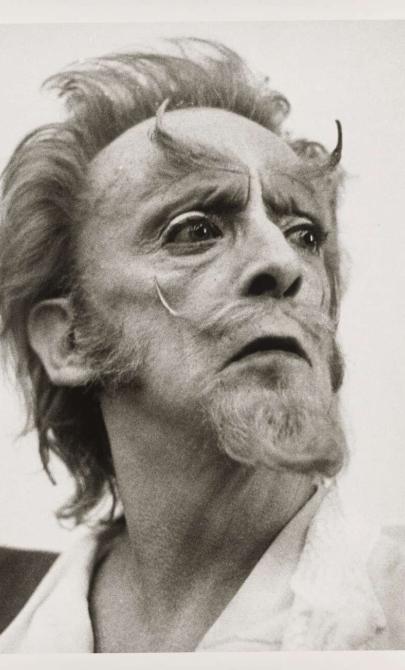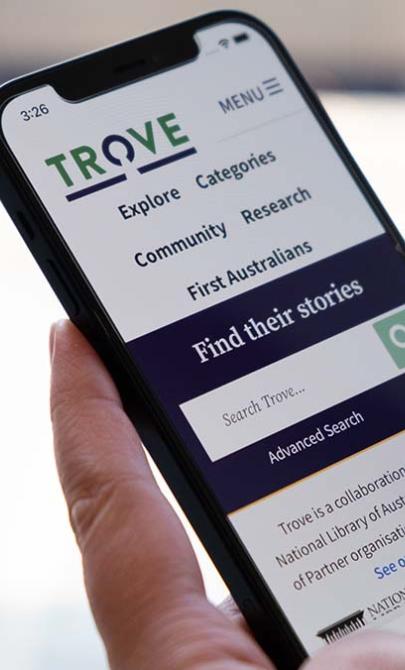On Stage: Exhibition themes
About the exhibition
On Stage shines a spotlight on Australia's performing arts history, through the National Library's extensive performing arts collections.
From Dame to Dame, actor to audience, musicals to magic, honky tonk to hip hop, visitors will see their old favourites, discover new ones and see some objects that have never before been on display.
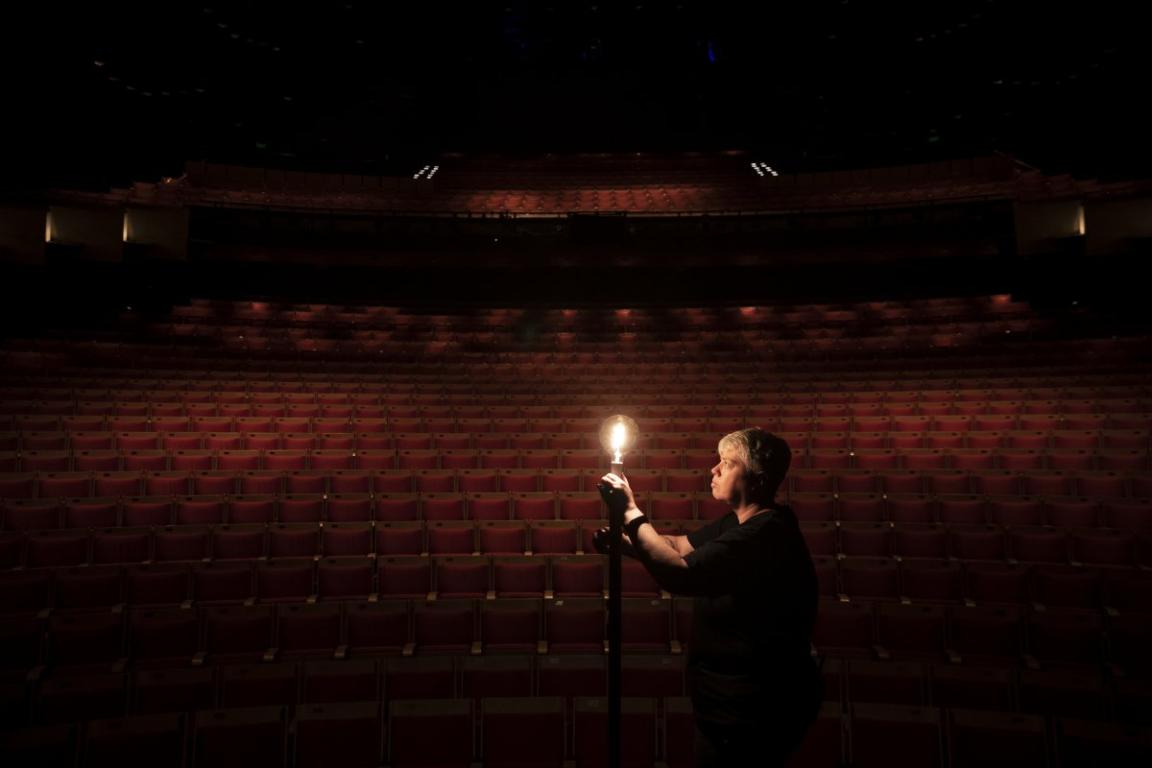
Daniel James Boud, Ange Sullivan, head of lighting, preparing a ghost light at the Joan Sutherland Theatre, Sydney Opera House, 2020, nla.gov.au/nla.obj-2976573618, courtesy Daniel James Boud
Daniel James Boud, Ange Sullivan, head of lighting, preparing a ghost light at the Joan Sutherland Theatre, Sydney Opera House, 2020, nla.gov.au/nla.obj-2976573618, courtesy Daniel James Boud
Selected exhibition themes
In 1789, a year after the arrival of the First Fleet, a play was performed on Gadigal Country, Sydney - George Farquhar's The Recruiting Officer (1706). A purpose-built theatre opened in Sydney in January 1796. Convicts organised and performed varied programs for several years. From the 1830s new theatres opened in Sydney and Hobart, and from the 1840s in Melbourne.
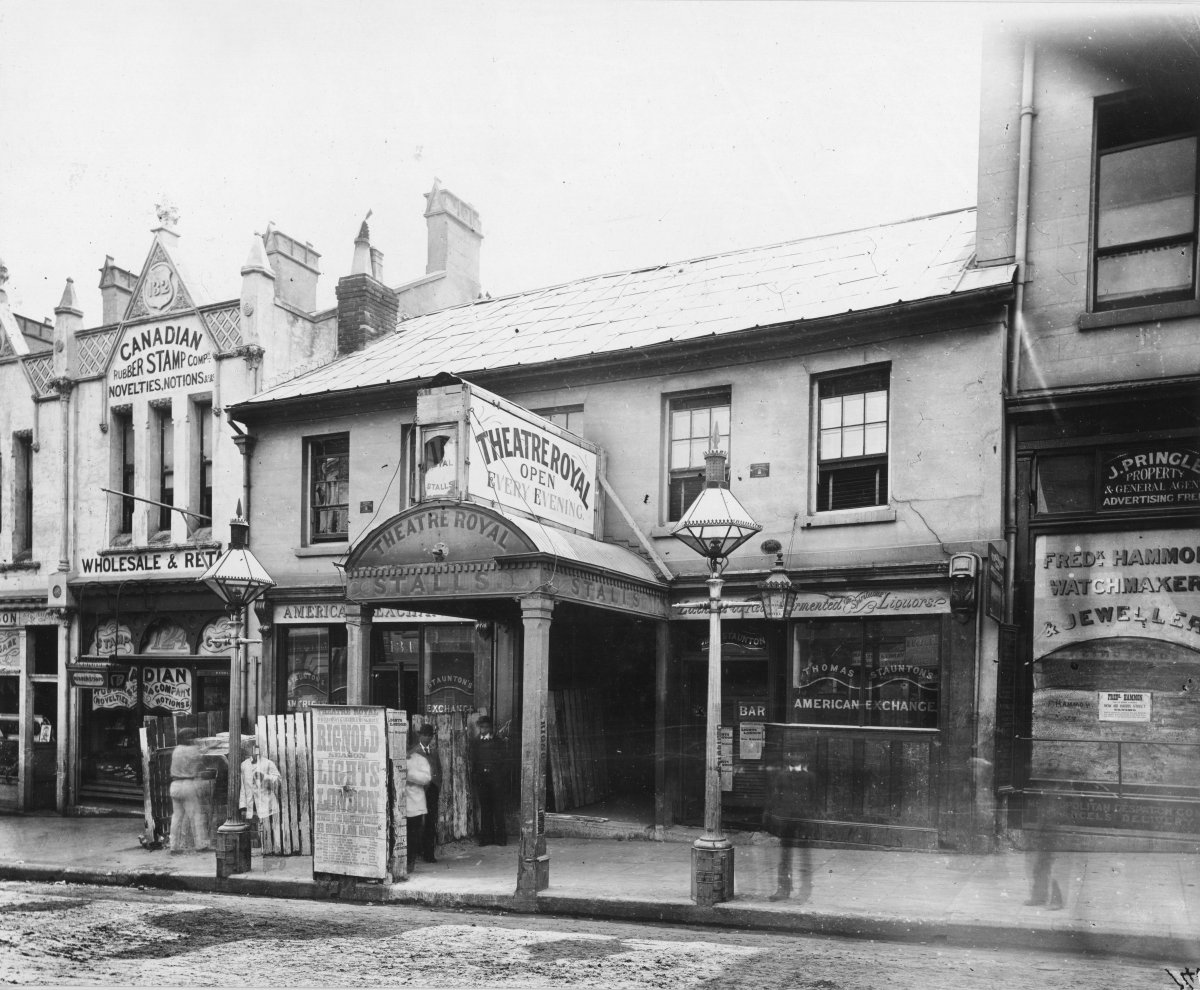
Theatre Royal, Sydney, King St. Entrance in 1882, nla.gov.au/nla.obj-137238900
The following image is of a simple flyer advertising a long evening's entertainment at Sydney's theatre: a play (Nicholas Rowe's Tragedy of Jane Shore), a farce and a dance. The earliest known document printed in Australia, it was discovered in Canada in 2007. The performers, all convicts, organised everything themselves.
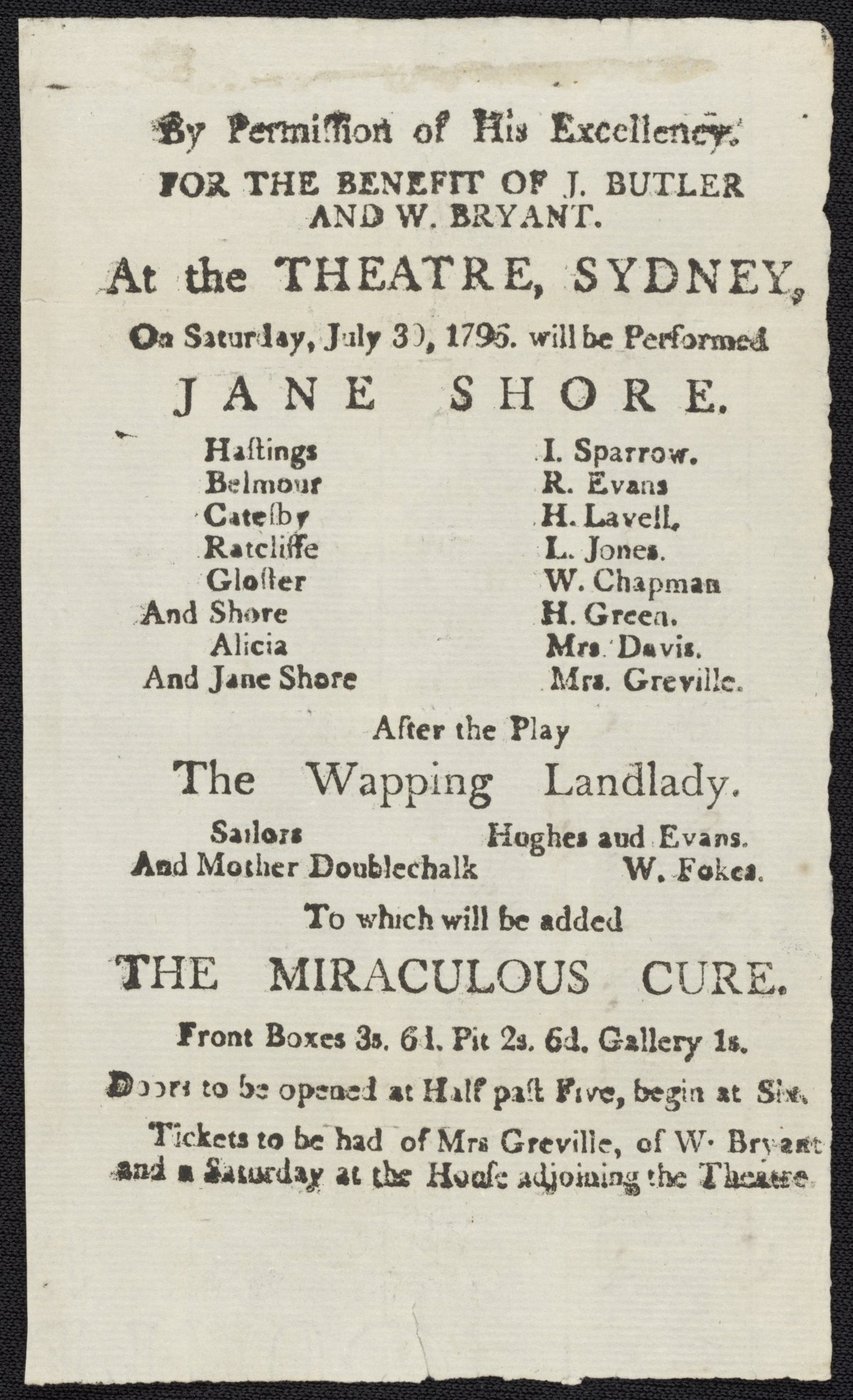
George Hughes (Government Printer), Playbill for a performance of Jane Shore, The Wapping Landlady and The Miraculous Cure at the Theatre, Sydney 30 July 1796, nla.gov.au/nla.obj-1419486 - the earliest surviving document printed in Australia.
The Gold Rush of the 1850s lured many to the Australian colonies. More people and money meant a greater need for entertainment. Overseas performers took advantage of this ready audience. New theatres were built. Travelling actors such as George Coppin became entrepreneurs, building empires that inspired successors such as Bland Holt, George Musgrove and J.C. Williamson.
American J.C. Williamson (1845–1913) and his wife, actor Maggie Moore, arrived in Australia in 1874 with a production called Struck Oil.
Actors, stars and entrepreneurs were often female, as shown by the women featured here: Lady Emilia Don and Sarah Bernhardt, the dancer known as Saharet and banjo player Elizabeth 'Bessie' Campbell.
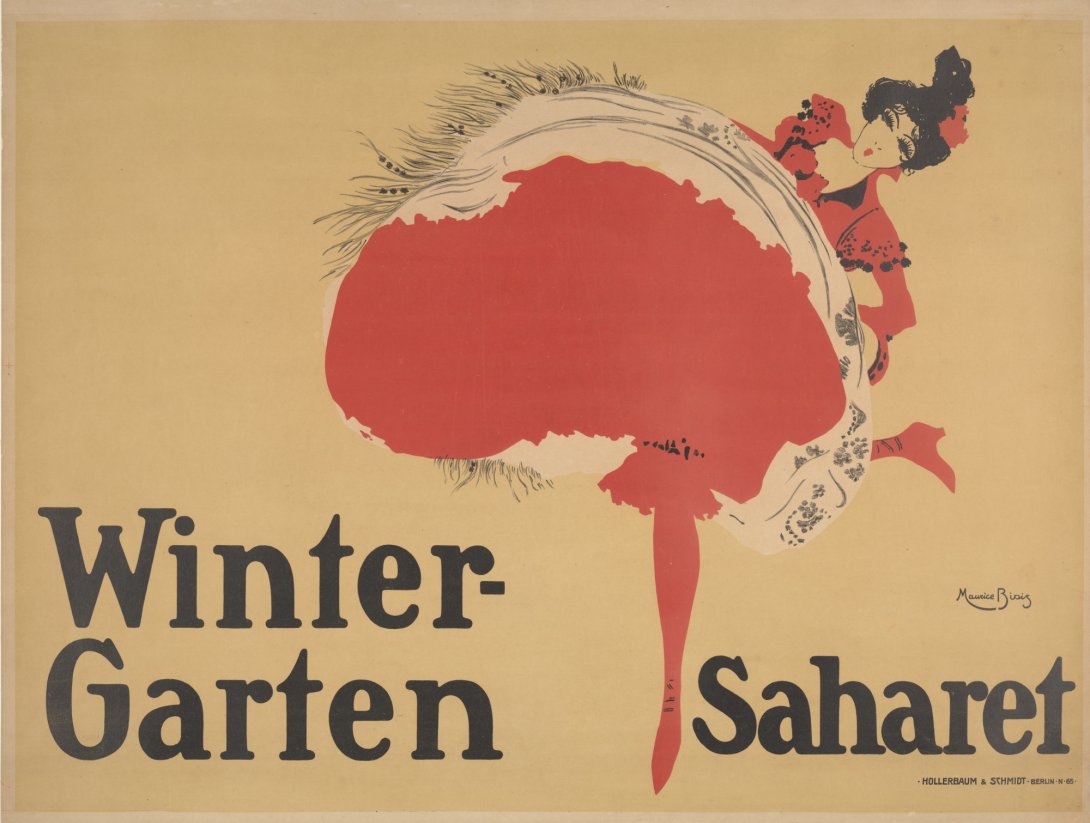
Maurice Biais, Wintergarten: Saharet, 1902, nla.gov.au/nla.obj-355224202
Irishman William Saurin Lyster established what became Australia's first resident opera company. It introduced a broad range of Australians to a regular program of grand opera. Though based in Melbourne, the company toured around Australia and New Zealand. In the 1860s, for example, it performed 42 full-length operas. The company dispersed after Lyster died in 1880. It would be 80 years before Australia had another permanent opera company.
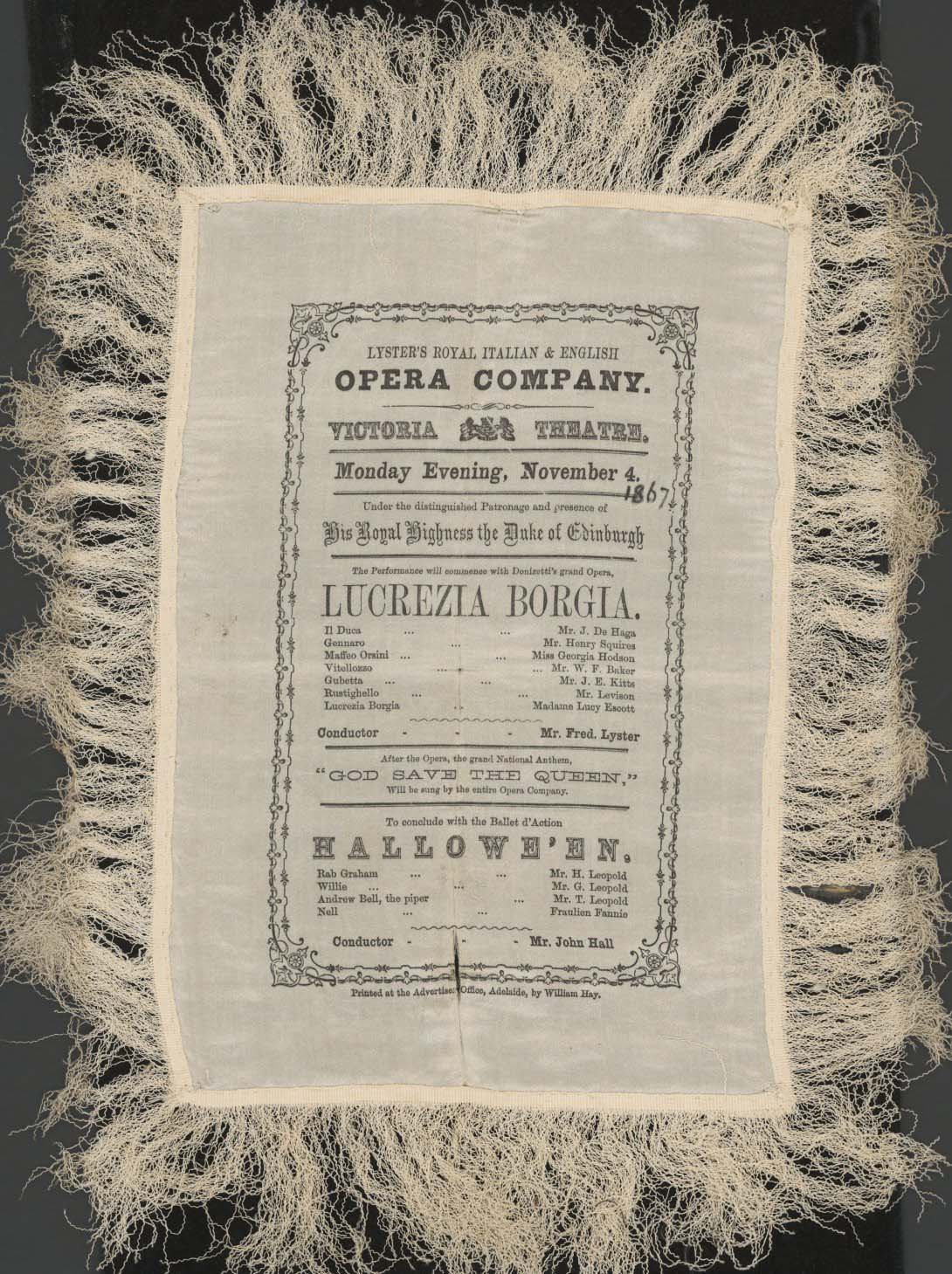
William Hay (printer), Broadside for a Performance of Lucrezia Borgia and Hallowe’en at the Victoria Theatre, Adelaide 4 November 1867, ink on silk. Adelaide: The Advertiser Office, nla.gov.au/nla.obj-52720957
Theatres and halls built in the 1880s and 1890s continue to thrive after Federation in 1901.
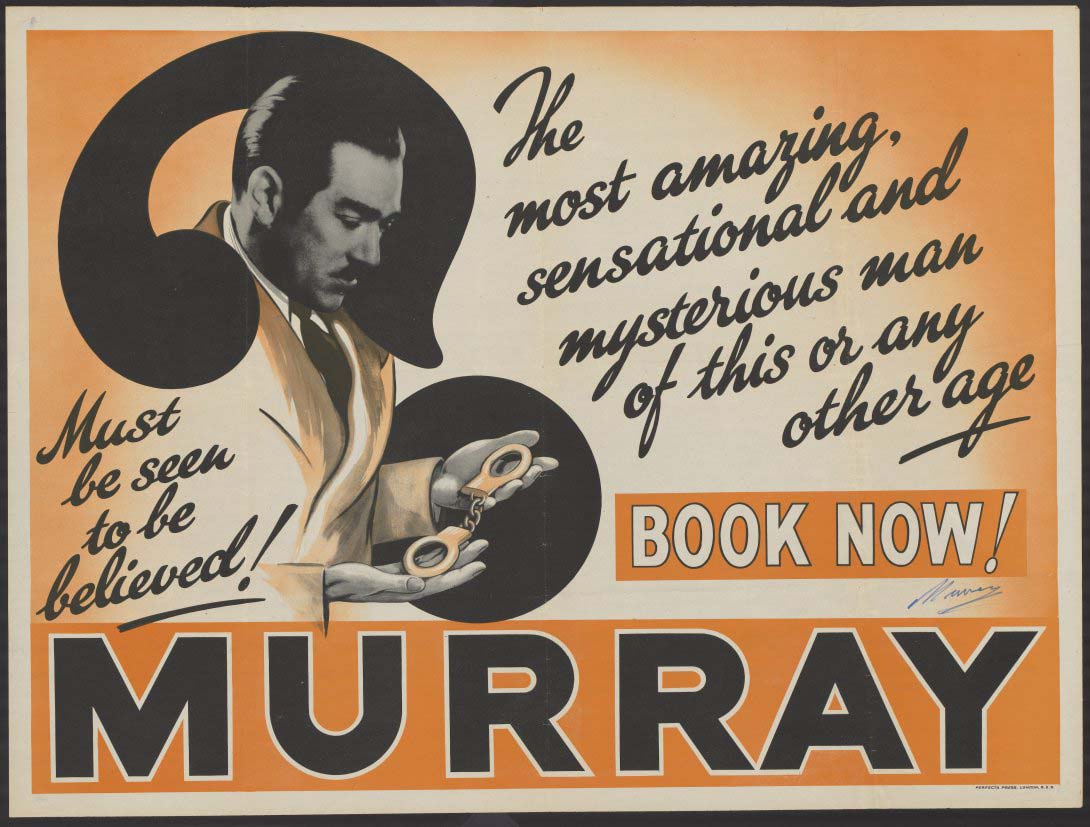
Murray the Most Amazing, Sensational and Mysterious Man of This or Any Other Age ... London: Perfecta Press, between 1920 and 1929, nla.gov.au/nla.obj-2632287217
Variety shows, melodramas and musicals were very popular, as were opera, drama and ballet. J.C. Williamson's company came to dominate entertainment in Australia and New Zealand, absorbing rivals and owning theatres. It brought out great stars of the stage: opera singer Dame Nellie Melba, ballerina Anna Pavlova and the Ballets Russes.
J.C Williamson brought Anna Pavlova - billed as 'the greatest dancer of all time' - and her company to Australia on two tours, in 1926 and 1929. She had danced with the Imperial Russian Ballet and the Sergei Diaghilev's original Ballets Russes.
A contract between J.C Williamson Ltd and Madame Pavlova dated 1 November 1928, signed by her manager and husband Victor Dandré, stipulated that she would appear twice during each performance, for a total of 30 minutes.
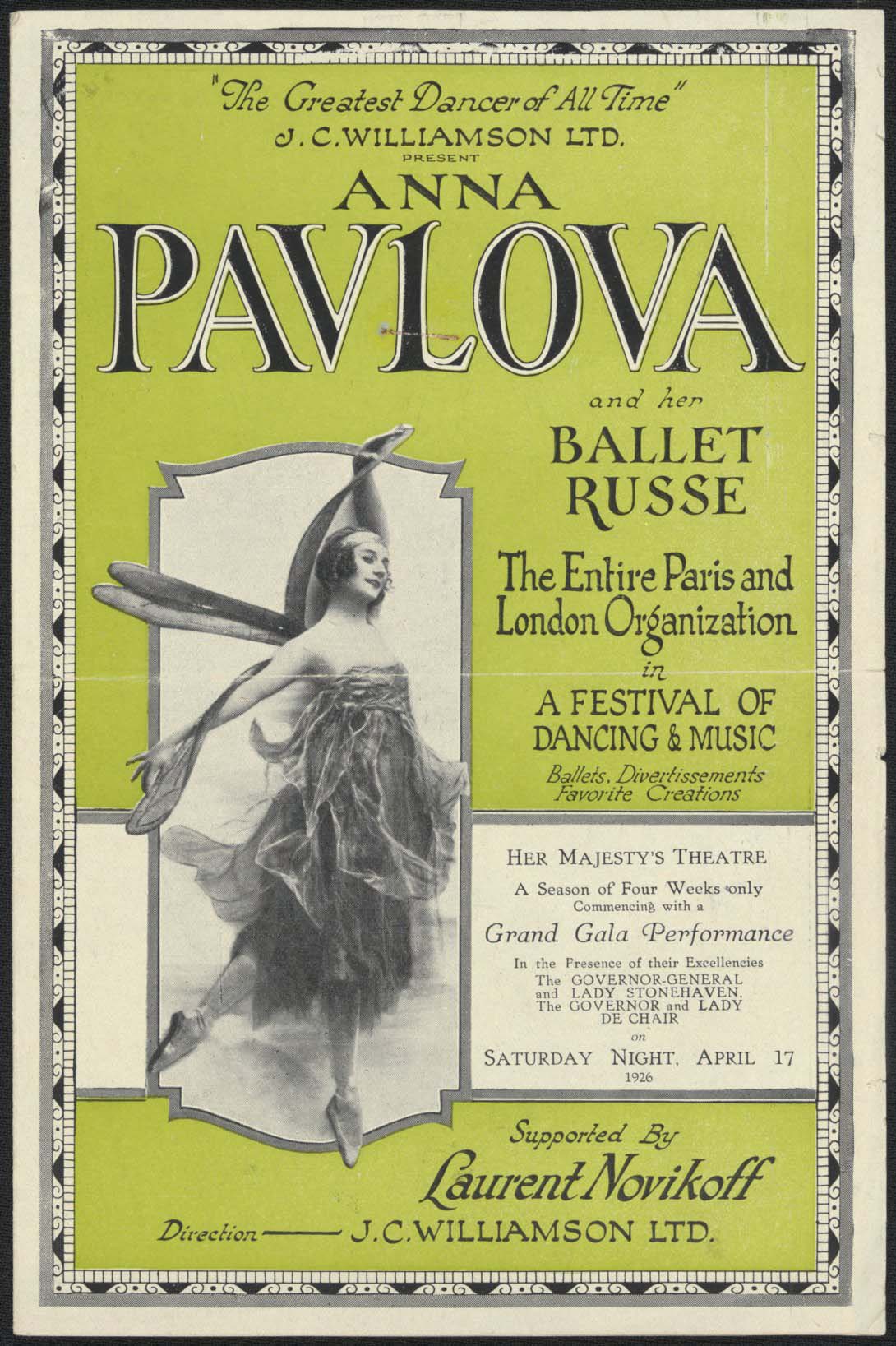
Anna Pavlova and her 'Ballet Russe', Her Majesty's Theatre, from 17 April 1926, nla.gov.au/nla.obj-54466908
But Australians also told their own stories, through performers such as Bert Bailey, Edmund Duggan, Roy Rene and Nat Phillips. And they welcomed back homegrown stars, such as Melba and actor-producer Oscar Asche, who had triumphed overseas.
After the end of the Second World War J.C Williamson Theatres Ltd brought American musicals to Australia.
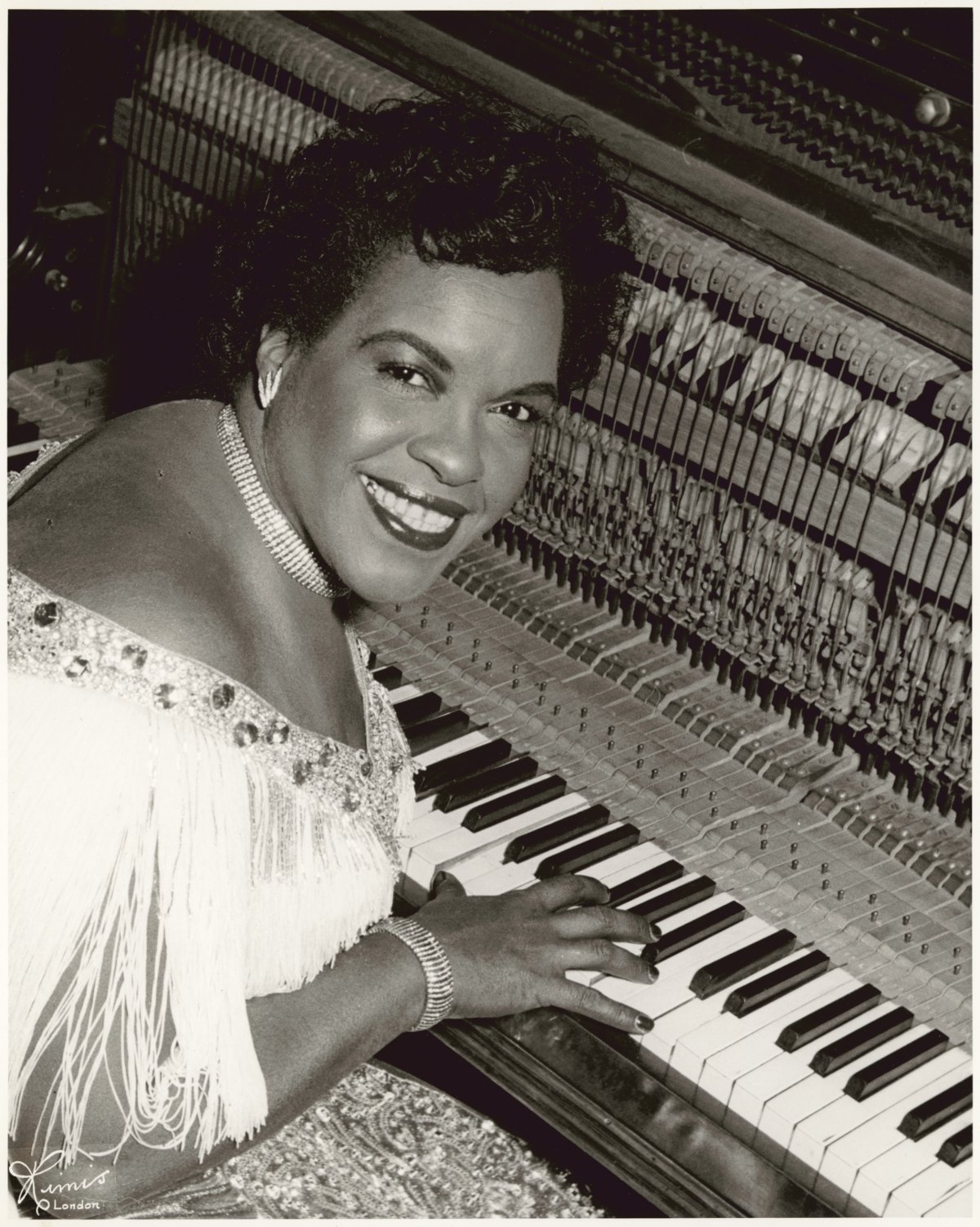
Portrait of Winifred Atwell, nla.gov.au/nla.obj-144625849
However, there was also a renewed push to tell Australian stories, and to establish national performing arts companies. Australia had long had a vibrant amateur 'little theatre' scene, which was perhaps more experimental than mainstream companies, but the federal government increasingly invested in the performing arts.
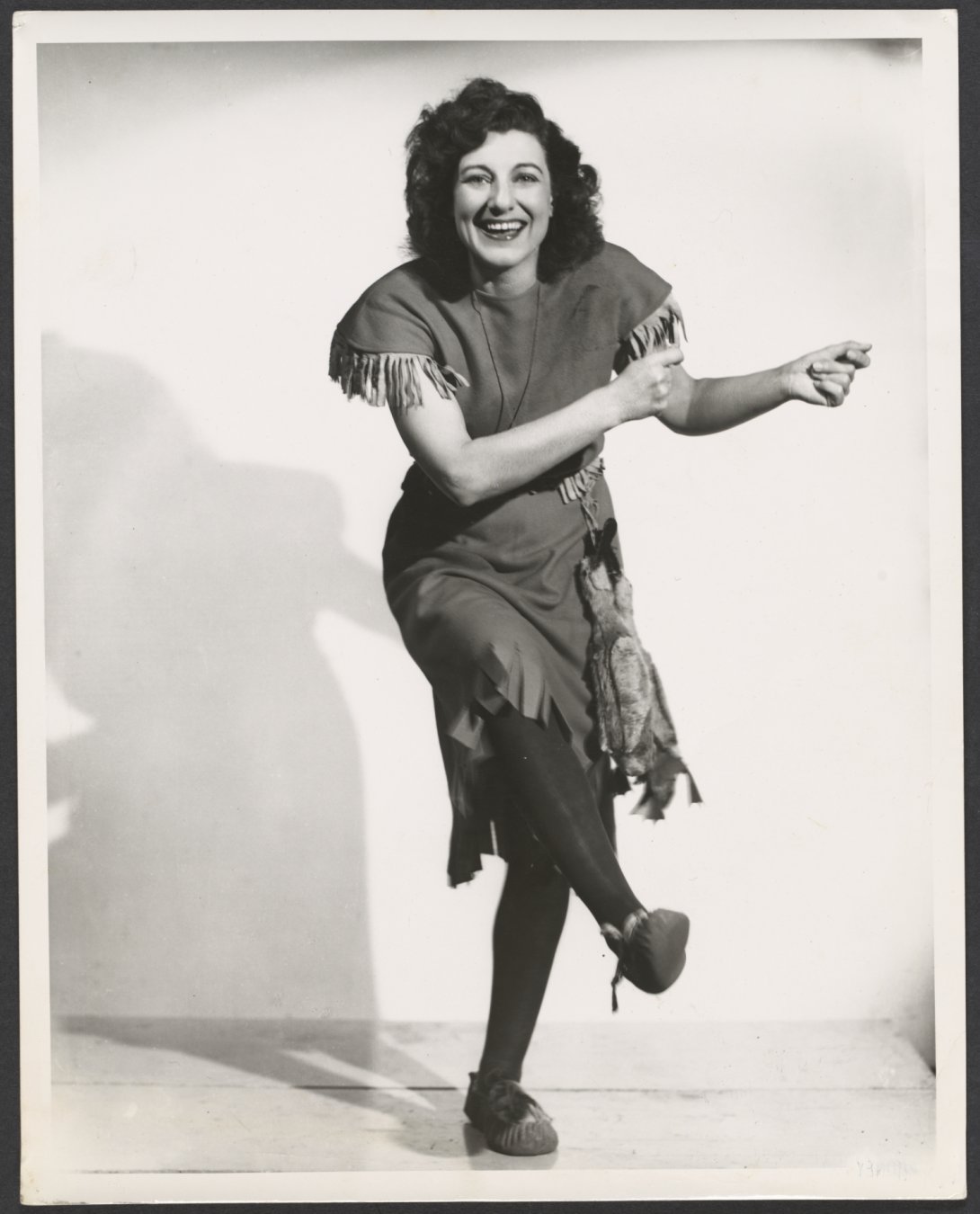
Hal Williamson, Evie Hayes as Annie Oakley in the J.C Williamson Production of Annie Get Your Gun, 1950, nla.gov.au/nla.obj-154327796
In the late 1960s and early 1970s came what was known as the 'New Wave'.
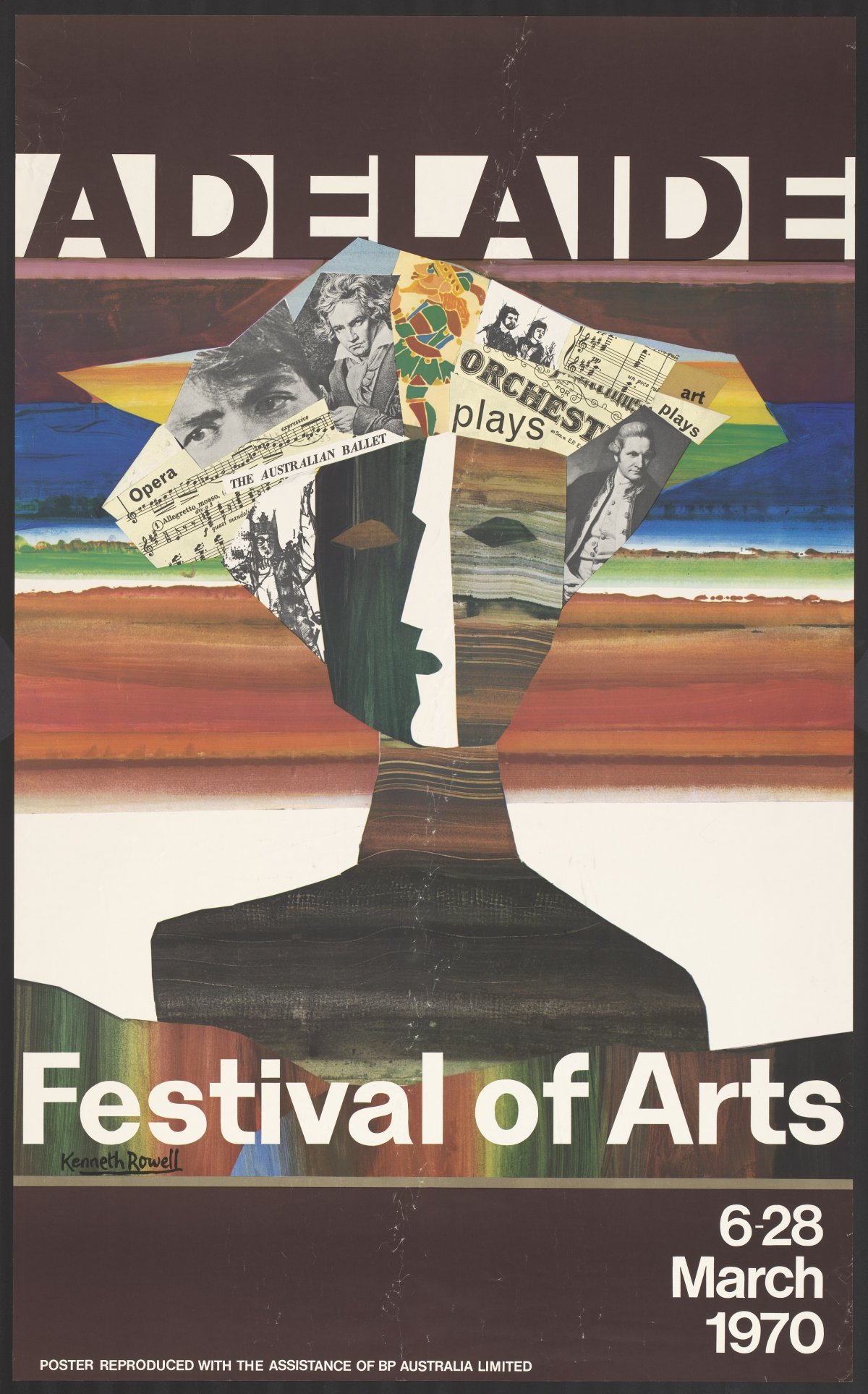
Kenneth Rowell, Adelaide Festival of Arts 6 - 28 March 1970, nla.gov.au/nla.obj-133748736, courtesy Victoria Rowell
Confident and provocative Australian voices and companies challenged attitudes and prejudices. The opening of the Sydney Opera House on Bennelong Point in 1973 gave Australian performing arts a dramatic centre stage.
Australia has a vibrant performing arts industry that features a range of original artists and creative people who have forged exciting careers at home and abroad. In this global age, Australia's performing arts are sometimes characterised as bold and collaborative, but with a larrikin spirit.

Martin Philbey, Hilltop Hoods Performing at Big Day Out Flemington Racecourse, Melbourne, 28 January 2008, nla.gov.au/nla.obj-151551215
Over the last 50 years, Australian performers and companies have continued to move and challenge audiences, inspiring us to laugh, cry and dance.
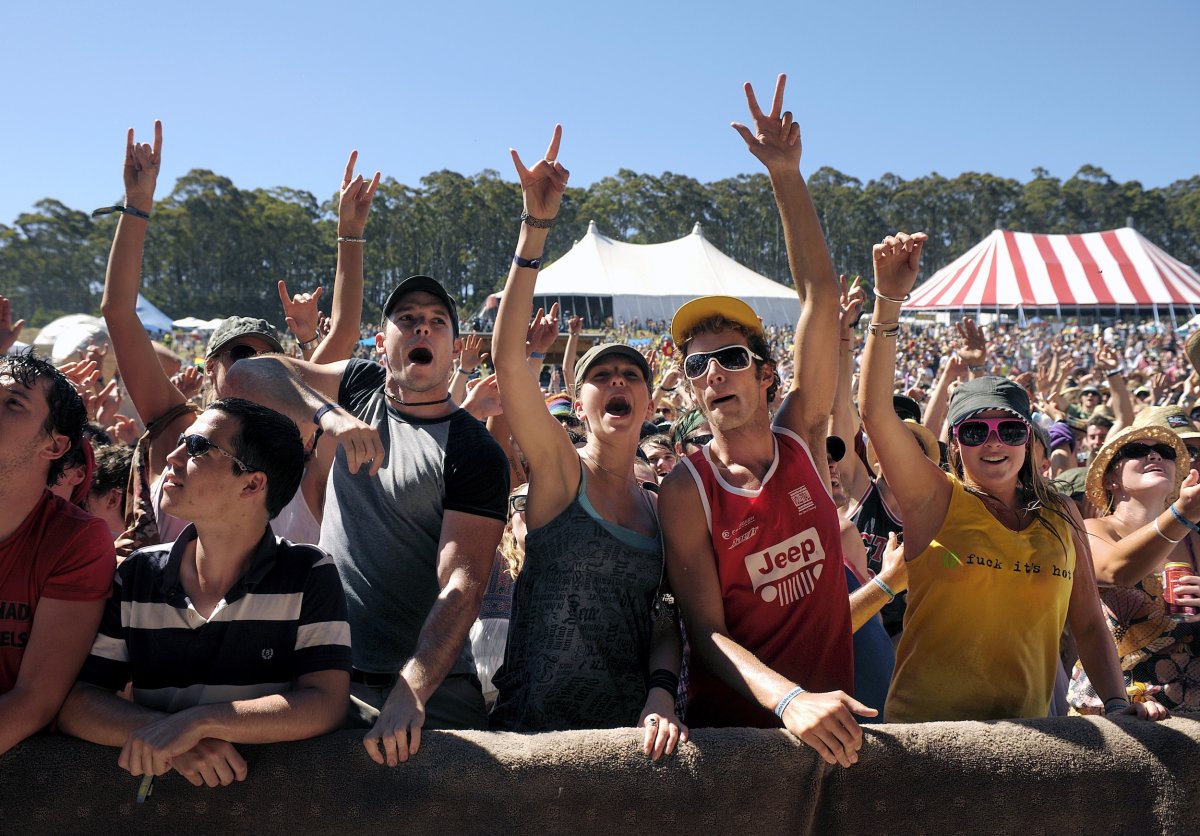
Martin Philbey, Audience at the Falls Music and Arts Festival, Lorne, Victoria, 2007, nla.gov.au/nla.obj-147950306
Visit us
Find our opening times, get directions, join a tour, or dine and shop with us.

